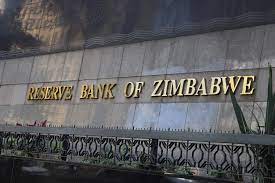
- The Reserve Bank of Zimbabwe is aiming for a public gold-backed digital token (GBDT) after investor success, boosting digital finance
- GBDT counters instability with a stable digital choice amidst high inflation and US dollar prevalence in local trade
- GBDT preludes a central bank digital currency (CBDC), showcasing Zimbabwe’s innovation in finance
The Reserve Bank of Zimbabwe (RBZ) is set to make a groundbreaking stride in digital finance with the imminent launch of its gold-backed digital token (GBDT) for widespread public use. This strategic move follows the resounding success the GBDT achieved within the investor community. This is a triumph that has been lauded in a recent report issued by the bank. The GBDT initiative was unveiled by the RBZ in April. In addition, It has marked a pivotal step towards digitizing Zimbabwe’s financial landscape and incorporating the intrinsic value of physical gold into the digital realm.
Moreover, this foray into the digital token space signifies an evolution in the traditional perception of currency and value exchange. Furthermore, the GBDT’s introduction was followed by 11 issuances, cumulatively accounting for an impressive 325 kilograms (716.5 pounds) of gold by July 21. This is according to the RBZ’s comprehensive mid-term financial report released on August 9. In addition, the GBDTs are meticulously backed by tangible gold reserves held by the RBZ, a move that serves as an embodiment of value in a digital form.
READ: Government’s desperate measures to revive the severed Zimbabwean dollar as election nears
This phase of the GBDT journey represents a pivotal juncture in the RBZ’s broader digital financial strategy. The GBDTs, was initially embraced by investors only. However, they are now poised to transition into a more accessible and practical tool for the general public. As the RBZ succinctly puts it, the GBDT “shall be scaled up to be used for transactional purposes by the public.” This transformative step promises to revolutionize the daily financial interactions of Zimbabweans. It offers them a safe, efficient, and value-preserving medium of exchange. Moreover, this benefits a nation where the US dollar has long been utilized in domestic trade.
The move towards GBDT adoption is not only a response to technological advancements. Furthermore, it’s also a pragmatic approach to addressing the economic challenges faced by the nation. Zimbabwe’s economic landscape has been marked by fluctuating inflation, which reached a staggering 175.8% in June. To stabilize the situation, the RBZ introduced an interest rate of 150% for that month. In such an environment, the introduction of a digitally-backed gold token holds the promise of not only modernizing the financial system. Moreover, it also provides a more stable alternative to the prevailing volatility.
READ: The role of cryptocurrency in transforming remittance allocation in Africa
Beyond the immediate benefits, the GBDT initiative underscores the potential of Zimbabwe to leverage the burgeoning field of digital finance. The RBZ’s strategic vision extends beyond the GBDT’s immediate use case. It views this initiative as an instrumental precursor to a broader and more encompassing transformation—introducing a central bank digital currency (CBDC). The RBZ embarked on its journey towards a CBDC in July 2022, and its progress has been consistent. An illuminating survey revealed that an impressive 71.7% of respondents displayed a willingness to embrace a CBDC. This underscores the nation’s openness to digital financial innovations.
The GBDT serves as a crucial pivot point in developing a CBDC. Its characteristics mirror those of a CBDC closely. Thereby setting the stage for the creation of a more encompassing digital currency. The GBDT’s divisibility, security, and underlying intrinsic value make it an ideal precursor to a CBDC. It lays the groundwork for a seamless transition to a more digitally inclined financial ecosystem.
READ: Zimbabwe sells millions of gold-backed cryptocurrency despite IMF caution
Zimbabwe’s commitment to innovation and adaptability is evident in its multifaceted approach to modernizing its financial landscape. The introduction of GBDTs, backed by tangible gold reserves, and the potential launch of a CBDC highlight the nation’s drive to harness the transformative potential of technology. Furthermore, this innovative journey reflects not only a shift toward digitization but also a strategic response to economic challenges. In addition, by enhancing transparency, security, and efficiency, the GBDT initiative is poised to contribute significantly to Zimbabwe’s economic revival and financial stability.
In conclusion, the Reserve Bank of Zimbabwe’s introduction of a gold-backed digital token marks a paradigm shift in the country’s financial landscape. The GBDT’s investor-driven success has paved the way for its broader implementation. This is as a transactional medium for the public, promising enhanced financial inclusivity and stability. This strategic endeavor aligns with Zimbabwe’s broader pursuit of a central bank digital currency, which is fueled by an enthusiastic reception among the population. As Zimbabwe positions itself on the cusp of a digital financial revolution, the GBDT initiative is a testament to the nation’s vision, adaptability, and determination to steer its economic trajectory toward a more prosperous future.
- SEO Powered Content & PR Distribution. Get Amplified Today.
- PlatoData.Network Vertical Generative Ai. Empower Yourself. Access Here.
- PlatoAiStream. Web3 Intelligence. Knowledge Amplified. Access Here.
- PlatoESG. Automotive / EVs, Carbon, CleanTech, Energy, Environment, Solar, Waste Management. Access Here.
- PlatoHealth. Biotech and Clinical Trials Intelligence. Access Here.
- ChartPrime. Elevate your Trading Game with ChartPrime. Access Here.
- BlockOffsets. Modernizing Environmental Offset Ownership. Access Here.
- Source: https://web3africa.news/2023/08/16/news/zimbabwe-reserve-bank-close-to-launching-gold-backed-tokens/
- :has
- :is
- :not
- :where
- $UP
- 11
- 2022
- 9
- a
- accessible
- According
- Accounting
- achieved
- addition
- addressing
- Adoption
- advancements
- After
- Aiming
- Aligns
- allocation
- also
- alternative
- amidst
- among
- an
- and
- approach
- April
- ARE
- AS
- AUGUST
- backed
- Bank
- BE
- been
- benefits
- Beyond
- boosting
- broader
- burgeoning
- but
- by
- case
- CBDC
- central
- Central Bank
- central bank digital currency
- central bank digital currency (CBDC)
- challenges
- characteristics
- choice
- Close
- closely
- commitment
- community
- comprehensive
- conclusion
- consistent
- contribute
- counters
- country’s
- creation
- crucial
- cryptocurrency
- Currency
- Cusp
- daily
- Despite
- determination
- developing
- digital
- digital currency
- Digital Finance
- Digital token
- digitally
- digitization
- digitizing
- displayed
- Dollar
- Domestic
- drive
- Economic
- ecosystem
- efficiency
- efficient
- Election
- embarked
- embodiment
- embrace
- embraced
- encompassing
- endeavor
- enhanced
- enhancing
- enthusiastic
- Environment
- evident
- evolution
- exchange
- extends
- faced
- field
- finance
- financial
- financial report
- financial revolution
- financial stability
- financial strategy
- financial system
- followed
- follows
- For
- Foray
- form
- fueled
- Furthermore
- future
- General
- general public
- Gold
- groundbreaking
- groundwork
- harness
- Held
- High
- High inflation
- Highlight
- holds
- However
- HTTPS
- ideal
- illuminating
- IMF
- immediate
- imminent
- implementation
- impressive
- in
- Inclined
- Inclusivity
- incorporating
- inflation
- initially
- Initiative
- Innovation
- innovations
- innovative
- instability
- instrumental
- interactions
- interest
- INTEREST RATE
- into
- intrinsic
- introduced
- Introduction
- investor
- Investors
- Issued
- IT
- ITS
- itself
- journey
- jpg
- July
- june
- landscape
- launch
- launching
- Lays
- Leverage
- local
- Long
- make
- marked
- measures
- medium
- medium of exchange
- meticulously
- millions
- mirror
- modernizing
- Month
- more
- Moreover
- move
- multifaceted
- nation
- Nations
- now
- of
- Offers
- on
- only
- Openness
- paradigm
- perception
- phase
- physical
- Pivot
- pivotal
- plato
- Plato Data Intelligence
- PlatoData
- Point
- poised
- population
- positions
- potential
- Practical
- pragmatic
- precursor
- Progress
- promise
- promises
- promising
- provides
- public
- purposes
- pursuit
- Puts
- Rate
- reached
- realm
- recent
- reception
- reflects
- released
- Remittance
- report
- represents
- Reserve
- reserve bank
- reserves
- resounding
- respondents
- response
- Revealed
- Revive
- Revolution
- revolutionize
- Role
- safe
- seamless
- security
- Sells
- serves
- set
- setting
- shift
- showcasing
- significantly
- signifies
- situation
- Space
- Stability
- stabilize
- stable
- Stage
- Step
- Strategic
- Strategy
- stride
- success
- such
- Survey
- system
- technological
- Technology
- testament
- that
- The
- Them
- thereby
- they
- this
- those
- to
- token
- Tokens
- tool
- toward
- towards
- trade
- traditional
- trajectory
- transactional
- transformative
- transforming
- transition
- Transparency
- underlying
- underscores
- unveiled
- us
- US Dollar
- use
- use case
- used
- utilized
- value
- views
- vision
- Volatility
- was
- Way..
- which
- widespread
- Willingness
- with
- within
- zephyrnet
- Zimbabwe













